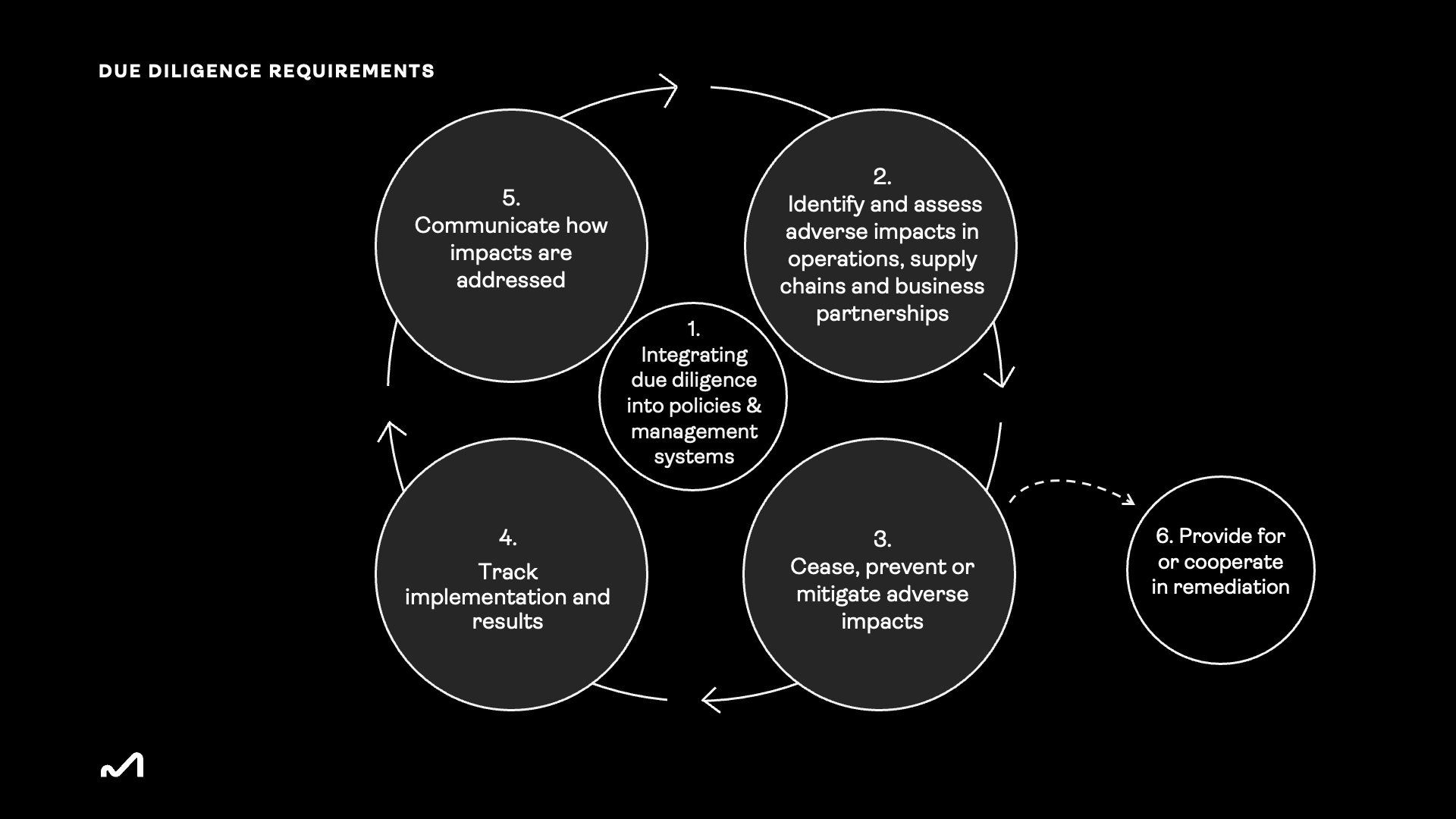16 January 2024
CSDDD Is Coming – Are You Ready?
The CSDDD marks a significant milestone, as it is the very first EU directive that mandates much more transparency and accountability from companies across their chain of activities.
Suvi Halttula
Head of Social Sustainability Practice
16 January 2024
CSDDD Is Coming – Are You Ready?
The CSDDD marks a significant milestone, as it is the very first EU directive that mandates much more transparency and accountability from companies across their chain of activities.
Suvi Halttula
Head of Social Sustainability Practice
After almost two years of debate and negotiations – on 14th of December 2023, a provisional deal on the corporate sustainability due diligence directive (CSDDD or CS3D) was reached in the trialogue negotiations between the European Parliament, European Commission and European Council. The pivotal directive brings the importance of understanding and acting upon potential and adverse environmental and human rights impacts to the core of sustainability transformations.
From non-binding expectations to binding regulation – the CSDD lays down rules
While the finalisation of the directive is still in progress, some of the key elements of the CSDDD are:
Adverse Impacts: Companies are obligated to address actual and potential adverse human rights and environmental impacts through a six-step due diligence process.
Liability & Penalties: Violations may result in liabilities, reinforcing access to justice for affected stakeholders, including trade unions and NGOs. Penalties can amount to up to 5% of annual turnover.
Paris Agreement Aligned Transition Plan: Companies are required to adopt a plan to ensure the compatibility of business model and strategy of the company with the transition to a sustainable economy and with limiting global warming to 1.5 °C
Who are in scope of CSDDD and when?
The provisional agreement fixed the scope of CSDDD to:
Companies with 500+ employees and 150+ million worldwide annual turnover
Companies with 250+ employees and 40 + million turnover in the "high-risk" sectors of manufacture & wholesale of textiles, shoes & leather products, manufacture of food, agriculture, forestry & fisheries and extraction & wholesale trade of minerals (construction sector still waiting for final approval)
Parent companies of large groups
Non-EU companies if they generate the turnover thresholds in the EU. The Commission will have to publish a list of non-EU companies that fall under the scope of the directive.
The directive is expected to be finalized in January-February 2024, after which it will go through a final verification & approval by European Commission & Parliament. Under EU Law, Member States will be given an adoption period of 2 years from final approval.
The expected transposition schedule:
1st phase – 2027 – companies with 1000+ employees
2nd phase – 2028 – companies with 500+ employees
3rd phase – 2029 – high-risk sector companies with 250+ employees
Due diligence process requirements include six core steps for companies to consider
The good news is that if your due diligence process already follows the United Nations Guiding Principles on Business & Human Rights or OECD Due Diligence Guidelines, you're well-positioned for the upcoming changes. The CSDDD aligns closely with the principles outlined in the OECD's Due Diligence Guidance for Responsible Business Conduct, following six core steps for companies to incorporate into their due diligence processes.
Exhibit 1: Due diligence requirements

As illustrated above, the due diligence process is not a one-time checklist; instead, it should be viewed as an ongoing, iterative commitment to identify and minimize adverse impacts on human rights and the environment.
Companies need to take proactive action to ensure due diligence is successfully integrated
While the details of the requirements are still being negotiated, there is an increased urgency for companies to start implementing the required measures companies cannot afford to wait until the CSDDD is finalized to start taking the necessary steps. Here is how your company can take the first steps in becoming CSDDD compliant:
Analyse magnitude of needed change: Evaluate current processes, practices, and capabilities (including IT systems) to identify potential gaps (in e.g., stakeholder engagement or providing remediation) that must be fulfilled to be compliant.
Map and assess risks and adverse impacts: Identify actual and potential adverse human rights and environmental risks and impacts throughout entire chain of activities, leveraging existing analysis, such as double materiality assessments, where possible.
Integrate due diligence into policies: Draft or iterate a due diligence policy and code of conduct that describes your approach to ensuring due diligence (all 6 steps).
Define the path to implement changes: Define detailed action plan that addresses change needs all the way from processes to IT systems in a feasible way and integrates due diligence into daily operations through PMO and change management best practices.
In conclusion, as the CSDDD is being finalized, businesses should recognize this as an opportunity for positive change. The CSDDD is not just a regulatory change; it's a paradigm shift towards a new era of responsible business conduct. Companies that proactively embrace these changes will not only meet compliance standards but will also contribute to creating a more fair and sustainable business environment. Are you ready?
Do you have further questions about the implications of CSDDD for your company or do you want a second opinion on your due diligence approach? Please get in touch, we’d love to support you on your journey. Our experts are available to support you in navigating the complexities of CSDDD and ensuring your company stands at the forefront of ethical and sustainable business practices.
Let's talk about how to make this happen
We help you set the foundation and grow into becoming true business leaders in vast sustainability transformations.
Mia Folkesson
Managing Partner
mia@impaktly.com
Let's talk about how to make this happen
We help you set the foundation and grow into becoming true business leaders in vast sustainability transformations.
Mia Folkesson
Managing Partner
mia@impaktly.com